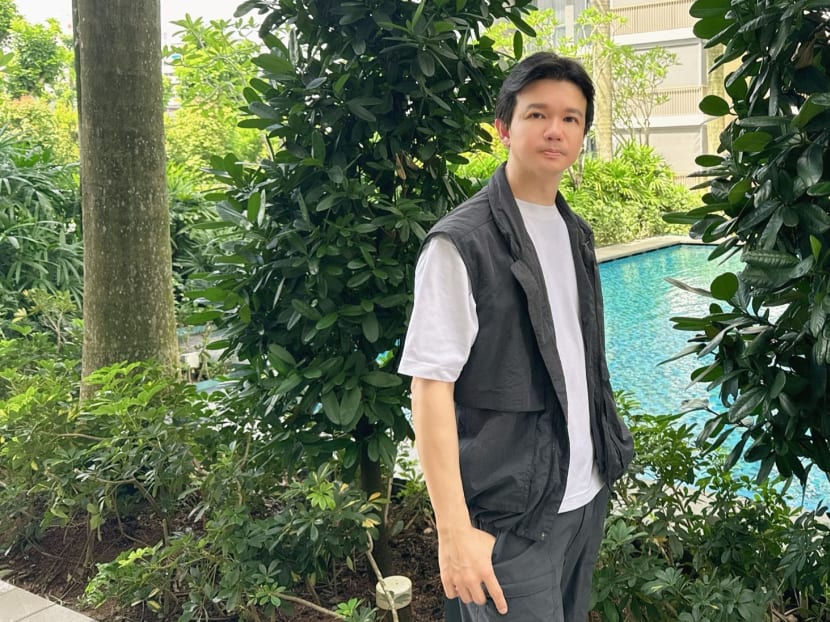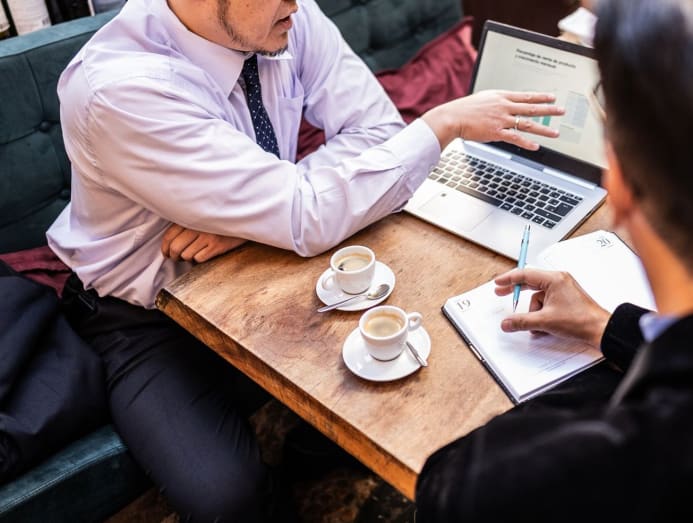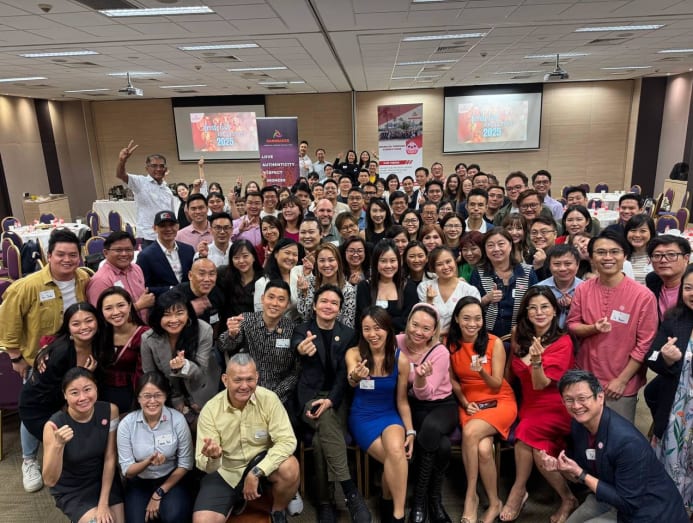My family and I lost S$500,000 to a scam. Taking responsibility for it was hard, but it helped me grow
Mr Richard Giam never thought he would fall victim to a scam, much less become part of one. Even though he is not proud of his failings, he is proud of how he picked himself back up from the setback.

Mr Richard Giam (pictured) had to learn the hard way that scams do not always look like scams. They can come disguised as friendship. (Photo: Richard Giam)

This audio is generated by an AI tool.
I learnt the most painful lesson of my life in 2019.
Together with my wife, my in-laws and my brother, we lost nearly half a million dollars to a scam. The financial loss was devastating, but the real damage was personal, relational and emotional.
You might be wondering: How does a mature, educated person fall so hard for a scam?
The prime reason is trust.
One day, a friend introduced me to a charismatic forex trader, a well-mannered gentleman who exuded confidence and credibility. He shared an investment opportunity, which promised good returns in the form of fixed monthly payouts with a simple one-month withdrawal notice.
I’m not usually one to trust strangers at first sight, but my friend’s introduction lowered my guard.
I decided to invest a small sum to test the waters. When the returns came as promised, I started gradually increasing my investment sum and even rolled the profits back into the scheme.
There were no red flags, no pressure, just consistent “results” from a “professional” who seemed to know what he was doing.
What began as a cautious experiment grew into a six-figure commitment within a few years.

During that time, the trader and I connected over shared values, talked about business and exchanged stories about our lives. He came across as sincere, humble and sharp. He even supported me as a donor in my corporate fundraising career.
My trust in him was built slowly over those years. The more we connected and the more money I made, the more my confidence in both him and the scheme grew.
Eventually, he became someone I considered a friend. I never imagined I could be wrong about him.
PULLING OTHERS INTO THE PIT
As I fell deeper, I began encouraging others around me to join the scheme.
I won’t lie, I did receive a recurring referral commission, but I also genuinely believed that it was a great opportunity.
I told myself it was a win-win. People around me would benefit and I would earn a little extra. Why think twice?
In total, I introduced more than 20 people to the scheme, including close friends and family. Like me, they were drawn in by the personal relationship they had with the individual bringing them into his fold.
We were all in until everything came crashing down one day.
I still remember the day I received the shocking news. The “trader” had been arrested and charged with fraud. The jig was up and it was a Ponzi scheme.
I felt physically sick. At that moment, I didn’t know what was worse, that my money was gone or that I had unknowingly led people I cared about into the same trap.
It was beyond awful to realise that I wasn’t just a victim. I was an accomplice, an unintentional instigator of harm.
My emotions were all over the place. All the same, I knew I couldn’t wait.
I broke the news to those affected. For three nights, I couldn’t sleep. I lost my appetite. My wife, daughter and I were devastated.
We had to tighten our belts overnight and our thoughts ran wild with worst-case scenarios. What if we never recovered from this?
BROKEN FRIENDSHIPS
We were hurting about the financial loss, but even more so, we agonised over the emotional fallout: strained relationships, broken trust and deep shame.
Some friends were gracious and understanding, and I’ll forever be indescribably grateful.
Others weren’t. A few relationships never recovered and honestly, I don’t blame them. They had every right to be angry, to question and criticise my judgment now.
By then, I was no longer in close touch with the friend who had originally introduced me to the trader. Nevertheless, it felt like our friendship, too, was over.
The case went to court but as it unfolded, the victims were divided.
Some supported the prosecution, hoping to recover their money since the trader’s accounts were frozen. Others held onto hope that if the case was dropped, payouts might resume.
Two camps, two versions of denial – and I felt caught between them.
Then came another gut-wrenching twist. I was called to testify as a prosecution witness.
Truth be told, I didn’t want to do it. Rationally, I understood that the scammer had done wrong to me and so many others. Still, he had been my friend. I still felt lingering gratitude to him, especially for his support earlier in my career.
But I had no choice. The law compelled me. I had to do the right thing.
TAKING OWNERSHIP
If you’re thinking “This could never happen to me”, I understand. I once thought the same.
However, scams don’t always look like scams. They often come to us disguised as opportunity, friendship and success.
Eventually, I came to a painful but important realisation. Although the trader had been at the crux of it all, it wasn’t just his fault. It was also mine.
I had enabled him by placing relationships above reason and emotion above evidence. I had wanted to trust him so much that I’d failed to see when that trust had crossed over into blindness.
I had to confront my blind spots and take ownership of my actions and decisions. I began rebuilding – not just my finances, but also my mindset and capabilities.
With strong support from my mentors and friends, I immersed myself in deal-making, this time making sure to do thorough due diligence at every single step.
I dove deeper into stock investing, trading psychology and financial literacy.
I took charge of my own investments instead of outsourcing my financial future to so-called experts.

Today, I’m fortunate enough to have bounced back to an even stronger financial standing than before, with good returns from my own investment portfolio. More importantly, I’ve built resilience.
I may have learnt my lesson the hard way, but I’m now writing this to tell you that you don’t have to do the same.
Always exercise caution. Ask tough questions. Do your homework.
And remember that the most important investment you’ll ever make is in your own education and awareness.
NEW BEGINNINGS
Out of this painful pitfall, I found a new purpose, which is to help others avoid falling into the same pit.
I founded the Rainmaker Community, a business and social network where people gather monthly to learn and grow together, not only about growing in wealth but also in wisdom, human connection and character.
We don’t promise returns or chase hype, we build relationships and pursue purpose.
I’m not proud of what happened, but I am proud of how I responded.
It taught me a valuable lesson, that failure can indeed become life’s most powerful teacher, but only if you’re willing to meet it with honesty and humility.
Richard Giam is the founder of the Rainmaker Community, an investor and an advocate for ethical leadership and financial literacy.
If you have an experience to share or know someone who wishes to contribute to this series, write to voices [at] mediacorp.com.sg (voices[at]mediacorp[dot]com[dot]sg) with your full name, address and phone number.










